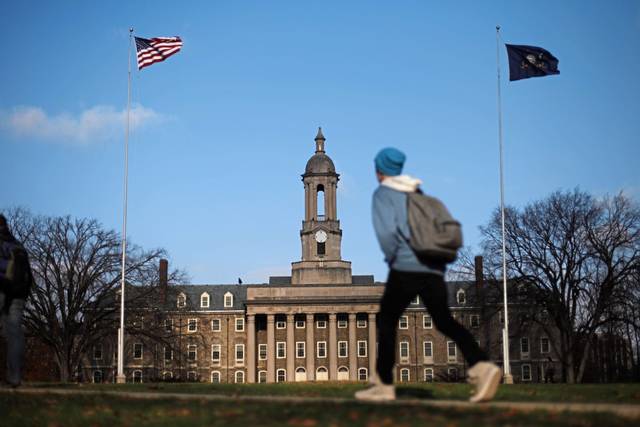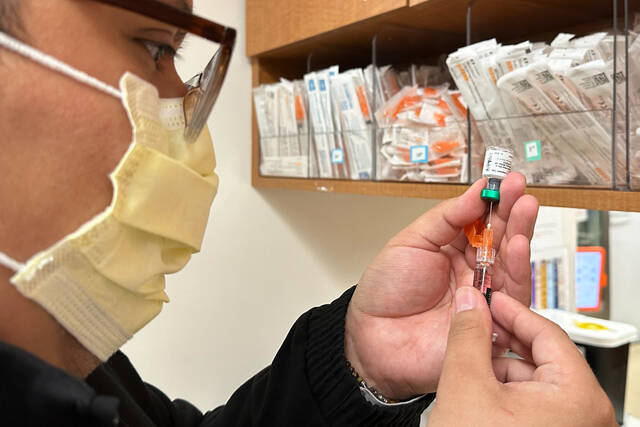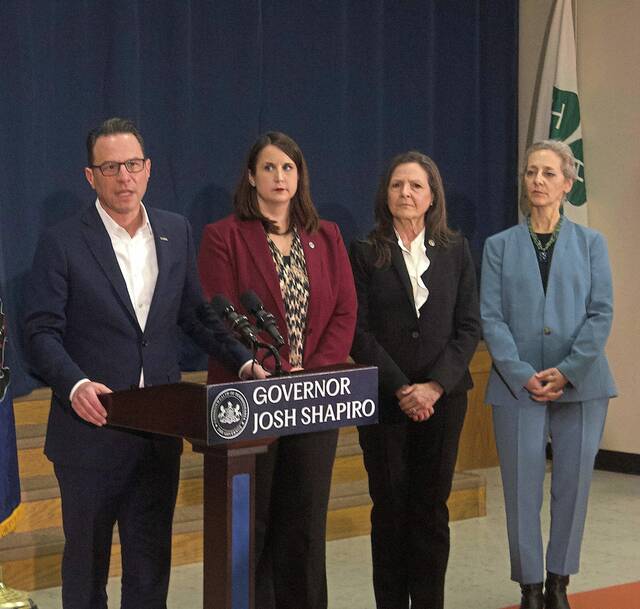Penn State students will be going back to school one week late, following a series of changes made to the spring semester aimed at making on-campus learning safer amid the covid-19 pandemic.
Officials announced plans for the 2021 spring semester Sunday, which include a later start date in January, continuation of flexible instructional modes, the elimination of spring break and a completion of instruction by April 30 for all undergraduate campuses. The changes aim to mitigate the spread of covid-19 and the flu during the winter months and allow more time for the university to conduct pre-arrival testing and any needed quarantine before beginning on-campus instruction.
“The health and safety of our community is still guiding our decisions as we know that not only will covid-19 likely still be with us in the months ahead, but also Pennsylvania’s flu season will be upon us. We are delaying the start of the spring semester to limit the time we are in session during peak flu season and to create a buffer between New Year’s Eve and the start of the semester,” Penn State President Eric Barron said in a release. “The later start and the elimination of spring break are expected to reduce the possibilities for spreading the virus, and we again have the ability to pivot our instructional modes and operations if necessary. Faculty will have the option to choose their mode of instruction as long as it adheres to current health guidelines.”
The university will maintain its observance of Martin Luther King Jr. Day on Jan. 18 for students and faculty, when no classes will be held. Classes will begin Jan. 19 and final exams will be given May 3-7.
Next semester, staff and students will participate in the same modes of instruction currently in place — in-person, mixed-mode, remote synchronous and remote asynchronous instruction. Nick Jones, executive vice president and provost, said these four modes help provide students and faculty with familiarity and flexibility, adding that they are designed to help reach key learning outcomes.
Barron said the random surveillance testing of asymptomatic individuals currently used on campus will continue after Thanksgiving break until the scheduled winter break. Testing, both on-demand and surveillance, will restart in January and continue throughout the semester.
The university is seeking more testing options and exploring new rapid diagnostic testing technologies as they become available, said Kelly Wolgast, director of Penn State’s Covid Operations Control Center. That type of testing can generate a visually detectable sign of covid from a respiratory tract sample typically within 30 minutes.
“All of the mitigation efforts in place during the fall will continue to be in place in the spring, such as required wearing of face masks, social distancing, a prohibition on large gatherings and both our random and on-demand testing,” Wolgast said. “Testing and contact tracing are critical components of our multilayered in-person strategies as they have allowed us to identify, track and proactively mitigate the cascading consequences of a positive covid-19 result.”
The window of time for students to schedule spring courses has been adjusted, and students should check LionPATH to determine the date that they can schedule courses. A published schedule of courses in LionPath will be available for students Oct. 15, with registration beginning Nov. 1 for graduate students and Nov. 2 for undergraduate students.
The university also has canceled study abroad programs for the spring due to concerns about potential health risks during the pandemic, international travel advisories, limited support from consular services, and financial and academic planning.
“Our decision is rooted in the profound current uncertainties about travel out of the United States, mobility in host locations, and the ability to even return to one’s home country,” Brian Brubaker, director of Education Abroad in Global Programs., said in a release “We, in good conscience, cannot provide programs with so many unknown issues.”








